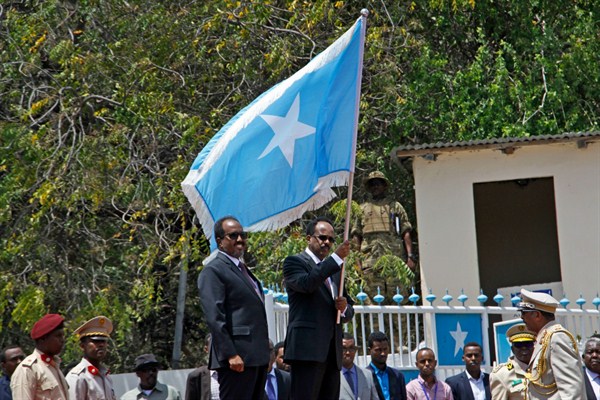Somalia, once seen only as a war-ravaged failed state, is preparing to achieve a momentous accomplishment. Later this year or early next, for the first time in more than half a century, the fragile nation in the Horn of Africa will hold something very close to a democratic election.
Somali officials, backed by Western diplomats and the United Nations, hope that millions of citizens will participate in the electoral process, even as the country’s weak central government and embryonic state apparatus, constantly tested by terrorist attacks and political dysfunction, continues a slow and disjointed recovery from a brutal military dictatorship and decades of civil war. The spread of the coronavirus in Somalia could complicate matters even more.
The government has ambitiously committed to nation-wide elections based on the principle of “one person, one vote,” a radical shift from previous polls that were decided by prominent clan elders and community leaders. Even before the coronavirus pandemic, electoral officials already faced a slew of challenges, including the lack of a fully codified and implemented constitution, as well as the need for a citizenship law, clarity on who is eligible to vote, and official district boundaries. Earlier this month, Somali national troops clashed with forces from the semiautonomous Jubbaland region, over a long-simmering political feud that makes holding an election in Jubbaland unlikely considering the ongoing political impasse.*

